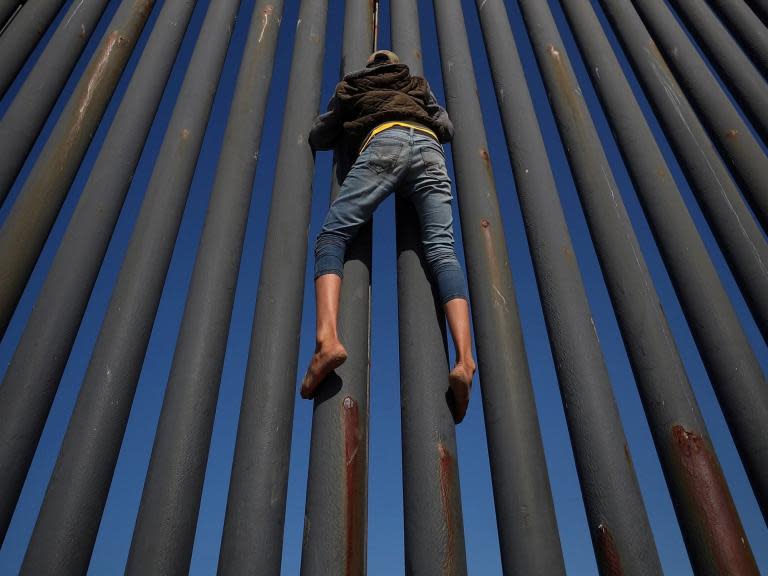Migrant caravan: Crisis requires 'Marshall Plan' to fix, new Mexican foreign minister says
Mexico’s incoming foreign minister has said that a scheme similar to the Marshall Plan that helped rebuild Western Europe after the Second World War will be necessary to handle the migrant crisis stemming from Central America and southern Mexico.
Marcelo Ebrard told reporters in Mexico Cory that a major investment of that kind would be necessary to develop the area and to ameliorate conditions that push migrants north from Central America and away from violence and poor economic prospects.
The idea has come up as incoming Mexican president Andrés Manuel López Obrador considers how to handle the border crisis that he will inherit when he is sworn into office this weekend. As his swearing-in approaches, US president Donald Trump’s administration has suggested that migrants should be kept in Mexico as their asylum claims are processed.
Mr Ebrard, who is due to meet US secretary of state Mike Pompeo on Sunday to discuss the border and migration, said estimates were still being prepared to determine just how much funding would be needed to develop the region.
Mexico alone was likely to invest more than $20 billion (£15.7bn) in southern Mexico during the coming administration, Mr Ebrard said.
“As a result, any serious effort undertaken for our brothers in El Salvador, Honduras and Guatemala would need to be a similar sum,” he said. The majority of those involved in the migrant caravans making their way to the US border are believed to be Honduran.
Revitalising Southern Mexico was a key pledge of Mr López Obrador’s during his run for the Mexican presidency, and defending the poor more broadly has been a central theme to his political rise to the top echelons of Mexican politics.
But the migrant crisis on the US-Mexico border may be the first major challenge to Mr López Obrador’s commitment to help the struggling masses he has championed as he looks to balance demands from the US alongside those of the migrants who are fleeing violence and economic depression in Central America.
Mexican officials have already indicated that keeping migrants in Mexican border towns is turning into a humanitarian crisis, with officials expressing concern that keeping would-be refugees in Mexico as they await the conclusion to their asylum cases could force people into crowded shelters with squalid conditions.
There has been added tension at the border between Tijuana and California after US border patrol officials opened fire with tear gas canisters on migrants who attempted to rush the border, with a number of women and children caught up in the clashes.
The US, for its part, defended the use of those tactics and Mr Trump indicated that tear gas canisters and other means of physical control are not intended to be used on women and children.
“They’re not coming into the United States. They will not be coming into our country,” Mr Trump said. “We don’t use it on children”.
Border agents were forced into action because they were “being rushed by some very tough people”, Mr Trump said – calling the use of tear gas "very safe" despite images of women and children crying in pain after it was deployed
Critics have accused the Trump administration of a draconian response, while Mexico – which says it will deport 100 of those – has demanded the US investigate its use of tear gas.
The migrants and refugees themselves were urgently exploring their options amid a growing feeling that they had little hope of making successful asylum bids in the United States or of crossing the border illegally.
There was a steady line on Tuesday outside a tent housing the International Organisation for Migration, where officials were offering assistance to those who wanted to return to their home countries.
The Marshall Plan gave more than $15bn – or more that $157bn in 2018 money – in economic assistance to Western Europe following the conclusion of the Second World War. The measure, which was also known as the European Recovery Program, was started in 1948 and helped to promote US anti-communist policies in the post-war period. The money helped to restore major economic and cultural centres in the UK, France, Belgium, Italy and Germany.
Associated Press contributed to this report


